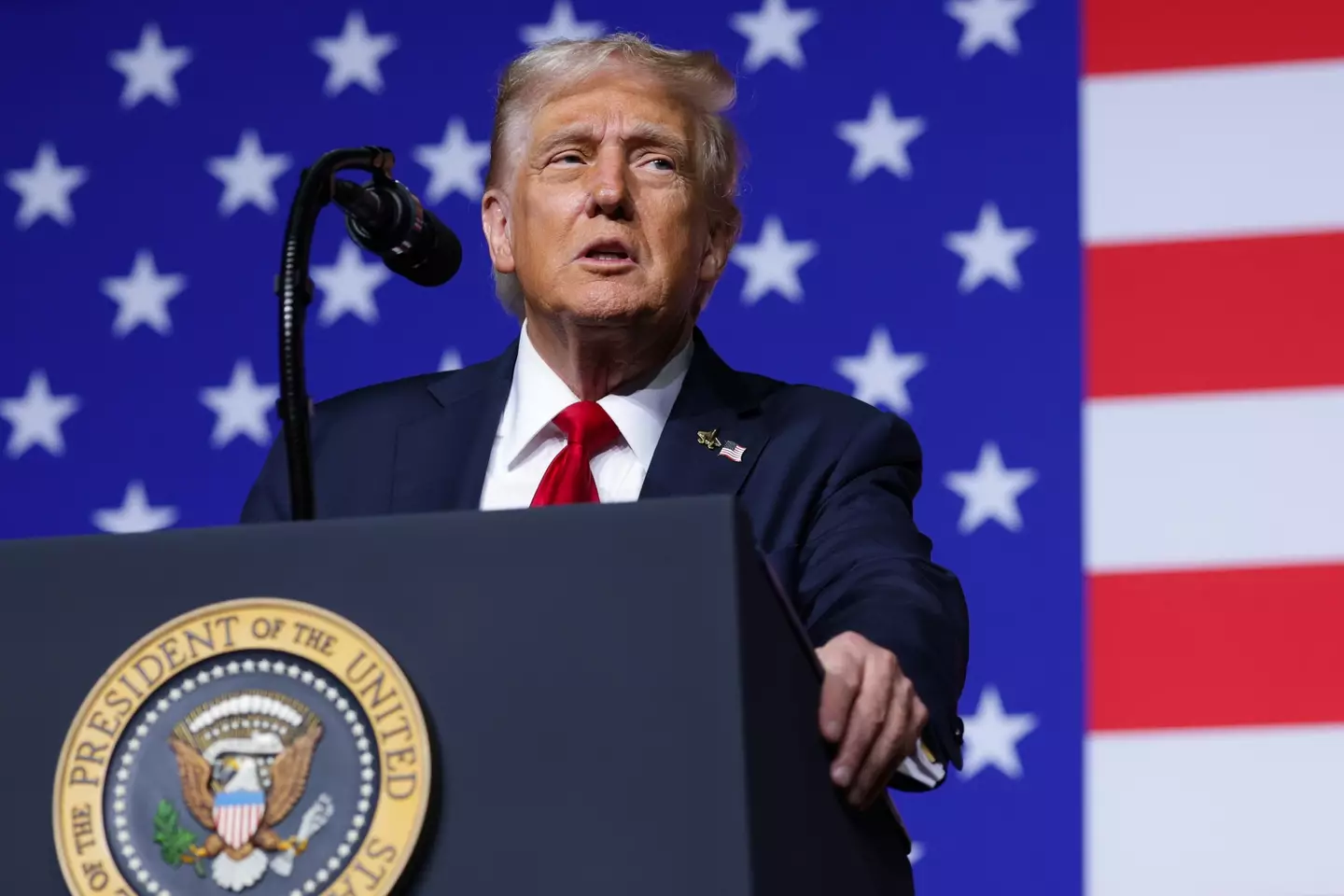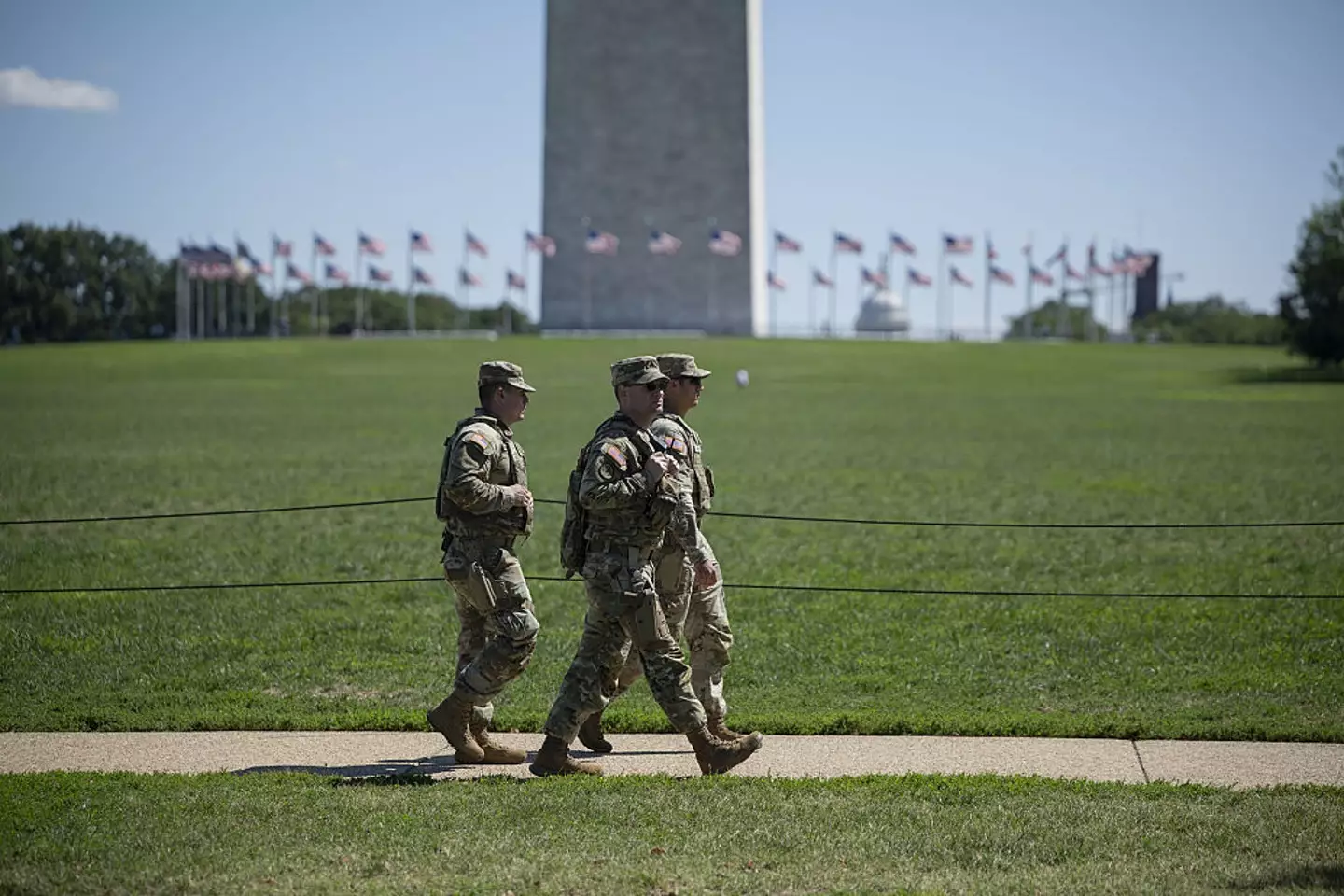
Topics: Donald Trump, Crime, Explained, US News, Politics

Topics: Donald Trump, Crime, Explained, US News, Politics
Donald Trump has hinted at using a centuries-old law to send the military into specific US states.
For those unfamiliar, the Insurrection Act is a law authorising the American president to deploy military forces on US soil.
It comes amid his ongoing showdown with Democrat-led cities, after in August he deployed 800 National Guard members into Washington, DC to tackle a 'crime emergency'.
The Republican leader controversially issued a federal takeover of the city's Metropolitan Police Department (MPD) on 11 August, as well as sending troops to places like Los Angeles and Chicago.
Advert
Trump's also recently been accused of being an 'authoritarian dictator' after he appeared to hint that he would withhold funding from New York City if Democratic candidate Mamdani were to be elected as mayor.
Also adding to the political tension is, of course, the ongoing US government shutdown, which began on 1 October when Republicans and Democrats couldn't agree on a spending bill.
But what is the newest act Trump's been seemingly considering? Here's everything you need to know.

The Insurrection Act of 1807 is a law that allows the president to utilise federal military troops or federalise National Guard troops in specific circumstances.
It may be used to manage uncontrollable protests or other civil disturbance situations, such as an armed rebellion.
As per Sky News, the statute states that it can be invoked when there are 'unlawful obstructions, combinations or assemblages or rebellion' against the authority of the US government.
President Thomas Jefferson signed it into law in 1807, and as you can imagine, it's very rarely used.
The Guardian reports that it was used frequently during the civil rights movement in the 1960s to protect activists and students who were desegregating schools.
George HW Bush also used it to respond to riots in Los Angeles in 1992.

Essentially, Trump is attempting to send National Guard troops to Democrat-led cities to address what he is calling 'out of control crime', but has come into some legal problems.
On Monday, a US federal judge temporarily blocked the Trump administration from deploying troops to Portland, Oregon, according to the BBC.
After the president deployed the guards in response to the Californian protests against immigration raids, the state filed two cases against him, with one being ruled in his favour, while the other found that the deployment had violated the Posse Comitatus Act, which generally prohibits military personnel from being used for domestic law enforcement purposes.
Speaking about the act from the Oval Office on Monday, Trump told reporters he would use it 'if it was necessary' but so far it 'hasn't been'.
He said: “But we have an Insurrection Act for a reason. If I had to enact it, I'd do that - if people were being killed ... and courts were holding us up, or governors or mayors were holding us up, sure, I do that. I mean, I want to make sure that people aren’t killed. We have to make sure that our cities are safe.”
The president added: "Well, it’s been invoked before. As you know, if you look at Chicago, Chicago is a great city where there’s a lot of crime, and if the governor can’t do the job, we’ll do the job."

It actually isn't the first time Trump has hinted at the possibility of using the Insurrection Act.
During his first presidential term, he suggested he would use it to quell unrest following the death of George Floyd, as per Reuters, an unarmed Black man who was killed in police custody, but ultimately, he did not do so.
He also more recently threatened to use the legislation in June after California Governor Gavin Newsom sued the president to block the use of military forces to accompany ICE in Los Angeles, calling it an 'illegal deployment'.
However, he didn't actually go ahead again.
If he does this time, it would be the first time since 1992.